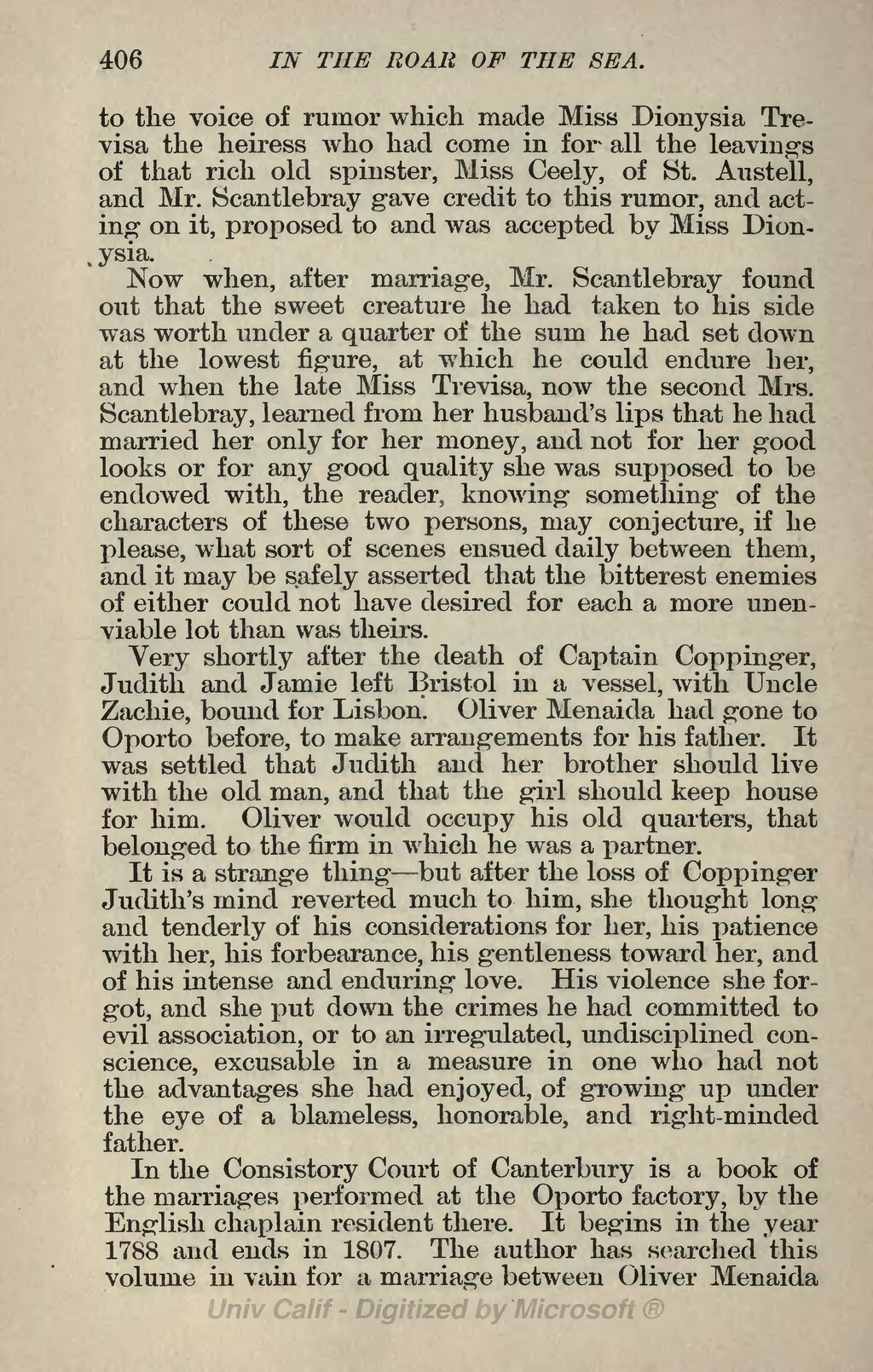to the voice of rumor which made Miss Dionysia Trevisa the heiress who had come in for all the leavings of that rich old spinster, Miss Ceely, of St. Austell, and Mr. Scantlebray gave credit to this rumor, and acting on it, proposed to and was accepted by Miss Dionysia.
Now when, after marriage, Mr. Scantlebray found out that the sweet creature he had taken to his side was worth under a quarter of the sum he had set down at the lowest figure, at which he could endure her, and when the late Miss Trevisa, now the second Mrs. Scantlebray, learned from her husband's lips that he had married her only for her money, and not for her good looks or for any good quality she was supposed to be endowed with, the reader, knowing something of the characters of these two persons, may conjecture, if he please, what sort of scenes ensued daily between them, and it may be safely asserted that the bitterest enemies of either could not have desired for each a more unenviable lot than was theirs.
Very shortly after the death of Captain Coppinger, Judith and Jamie left Bristol in a vessel, with Uncle Zachie, bound for Lisbon. Oliver Menaida had gone to Oporto before, to make arrangements for his father. It was settled that Judith and her brother should live with the old man, and that the girl should keep house for him. Oliver would occupy his old quarters, that belonged to the firm in which he was a partner.
It is a strange thing—but after the loss of Coppinger Judith's mind reverted much to him, she thought long and tenderly of his considerations for her, his patience with her, his forbearance, his gentleness toward her, and of his intense and enduring love. His violence she forgot, and she put down the crimes he had committed to evil association, or to an irregulated, undisciplined conscience, excusable in a measure in one who had not the advantages she had enjoyed, of growing up under the eye of a blameless, honorable, and right-minded father.
In the Consistory Court of Canterbury is a book of the marriages performed at the Oporto factory, by the English chaplain resident there. It begins in the year 1788 and ends in 1807. The author has searched this volume in vain for a marriage between Oliver Menaida
